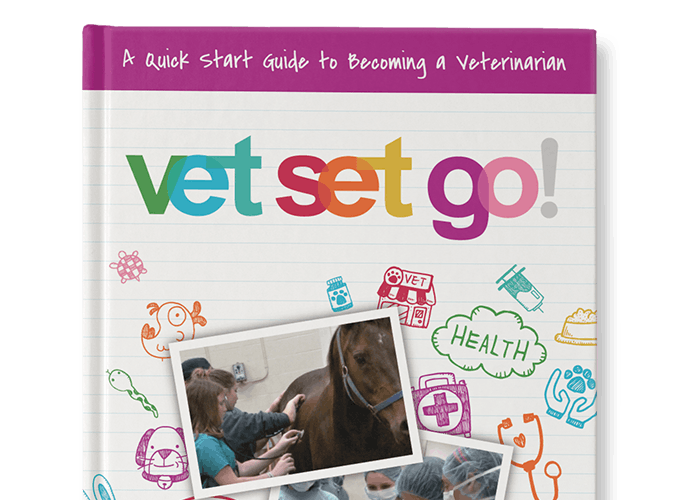How do you turn your love of animals into a career you love? If you’re a tween or teen, you’re in the right place: explore this site to learn more about veterinarians and the science behind animal care. But if you’re a little older, say, in high school, college or you already have a degree, the Association of American Veterinary Medical Colleges (AAVMC) offers a ton of resources to help answer your most pressing questions about veterinary school.
Is it hard to get into vet school?
You may have heard that it’s more difficult to get into veterinary school than medical school. But that’s really a myth. Although there are fewer vet schools than med schools in the United States, the entrance requirements are really quite similar. Admission is possible if you’re prepared to work hard. Learn about grades, majors, admission tests and more.
Which vet school is right for you?
With 30 accredited colleges of veterinary medicine in the United States, and 14 accredited schools in Australia, Canada, England, Ireland, France, Mexico, the Netherlands, New Zealand, Scotland and the West Indies, how do you choose the one that’s the perfect fit for you? Find a vet school near you.
Do you need a degree in science?
It’s not necessary to have a degree in science to get into vet school. In fact, you may not even need a college degree — as long as you’ve successfully completed the prerequisite courses. Get complete admission requirements for accredited national and international veterinary schools
What career options are available for veterinarians?
As a veterinary student, you can choose the species that interests you most, from dogs and cats to horses, cattle, exotics, pocket pets and even zoo animals.
If you decide to be a general practitioner, you’ll need to know a little about a lot of different subjects, from surgery and dentistry to radiology, internal medicine, nutrition and behavior. Or, you can apply for a residency after veterinary school so you can specialize — or focus your energy on knowing a lot about a specific subject — such as cardiology, ophthalmology, neurology, surgery or other veterinary disciplines.
You even have a choice of work environments: from private practice, emergency clinics, shelters or mobile practices to working in research, at animal health companies, universities or even in government. Learn about careers in veterinary medicine and see how different veterinarians are working to help animals.
Need some encouragement?
Register for Pathways, a free monthly newsletter tailored to your specific academic year. Learn about what’s new in veterinary medicine, webinars, student organizations and more. There are even special editions for parents and advisors.
Can’t wait to get started?
Get the ball rolling by reviewing the complete application checklist, including how to manage transcripts, letters of reference, admission tests and more. And it’s not too early to start thinking about scholarship opportunities.
Few careers offer greater emotional and professional satisfaction than veterinary medicine, where you can relieve pain and suffering and help animals live longer, healthier lives. With so many resources to guide you, chances are, it won’t be long before you’re celebrating your acceptance letter to veterinary school. Good luck!











Comments Add Comment
Want to add a comment?
In order to comment you need to login or join Vet Set Go